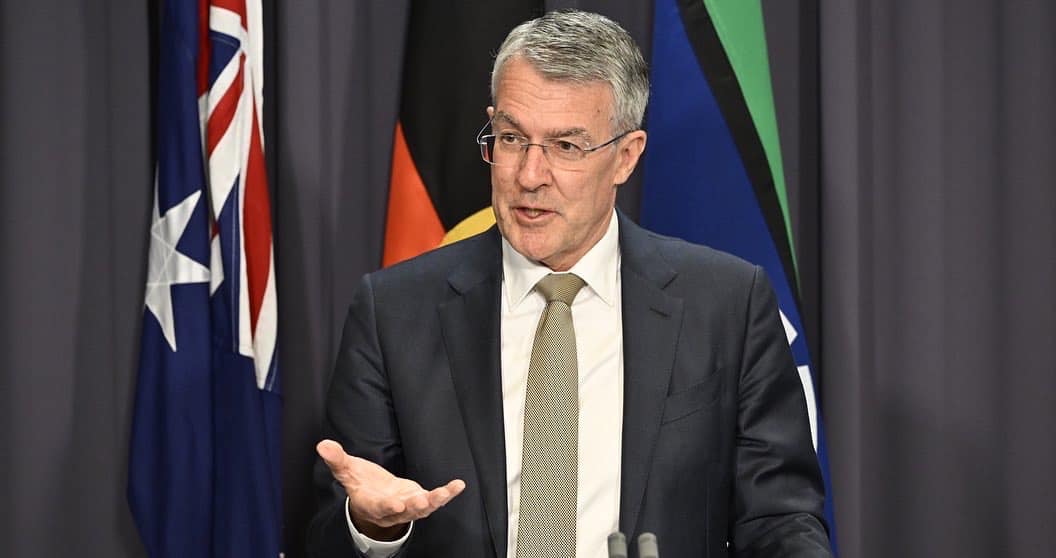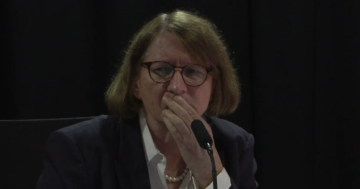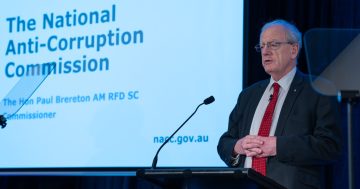
Attorney-General Mark Dreyfus has set the ball rolling for new laws to prevent public servants avoiding ombudsman scrutiny. Photo: Supplied.
Public servants will be required by law to cooperate with all future Commonwealth Ombudsman investigations, if new laws aiming to avoid a repeat of Robodebt are passed.
Legislation introduced to Federal Parliament on Thursday (10 October) will ensure Australian Public Service (APS) agencies are subject to stronger and more rigorous scrutiny.
Attorney-General Mark Dreyfus said the Robodebt experience showed it could not always be assumed that public servants would cooperate with the ombudsman, because attempts to investigate at the time were “deliberately obstructed”.
New laws will impose a statutory duty on public servants to cooperate with the ombudsman.
“The Report of the Robodebt Royal Commission made it clear that strong and effective oversight is necessary to safeguard the community in their dealings with government,” Mr Dreyfus said.
“Trust in government depends on this.
“The Albanese Government’s response to the royal commission committed to improving public trust in government. It recognised the important role that impartial, independent and robust oversight plays in delivering on this commitment.”
Mr Dreyfus’ Oversight Legislation Amendment (Robodebt Royal Commission Response and Other Measures) Bill 2024 implements the Federal Government’s response to royal commission recommendations 21.1 and 21.2 to ensure Commonwealth agencies are subject to stronger and more rigorous scrutiny.
The royal commission found some officials and agencies “engaged in behaviour designed to mislead the ombudsman and impede their investigation” into the Robodebt Scheme.
The bill seeks to ensure public servants can’t engage in such obstructive and evasive behaviour again.
The legislation imposes a statutory duty on the public service to assist the ombudsman in the performance of their functions; and ensures the ombudsman has strong powers to obtain full and direct access to records.
This will include establishing a new offence for withholding reasonable facilities and assistance from the ombudsman.
“The bill also enhances the ombudsman’s ability to undertake full, independent and transparent investigations,” Mr Dreyfus said.
“This includes modernising the ombudsman’s information-gathering powers to enable remote access to agency records.”
The bill also introduces equivalent enhanced duties and powers for the Inspector‑General of Taxation (IGTO) and Taxation Ombudsman to recognise the IGTO’s role in providing community assurance that taxation laws are being administered with integrity.
“These amendments are supported by a commitment of $2.3 million over four years from 2023-2024 and $700,000 ongoing,” Mr Dreyfus said.
“This will provide additional capacity for the Office of the Commonwealth Ombudsman to handle complaints and undertake investigations of systemic issues, as part of the government’s response to the Robodebt Royal Commission.”
An Australian Public Service Commission (APSC) investigation determined that 12 former and current public servants had breached the APS Code of Conduct 97 times. They included two former department secretaries Kathryn Campbell and Renée Leon, the only ones named in the APSC’s report.
The inquiry found they had failed in their obligations 25 times during their tenures at the Department of Human Services.
Sanctions have been imposed against four current APS employees found to have breached the code, including reprimands, demotions and fines.
In releasing the report, APS Commissioner Gordon de Brouwer apologised for the harm the scheme had caused to vulnerable Australians.
“The Robodebt Scheme was a failure of government in both policy design and implementation,” Dr de Brouwer said.
“The Australian Public Service acknowledges its role and takes responsibility for its actions, and is intent on learning from these failures to serve the government, parliament and Australian public better.
“I apologise as Public Service Commissioner to those affected by the scheme and to the Australian public for the part played by public servants in this failure.”
The National Anti-Corruption Commission (NACC) decided not to investigate those referred to it by the royal commission. The NACC decision is now under investigation.
The Robodebt automated debt recovery scheme was piloted in 2015 and fully rolled out between 2016 and 2019 by the Department of Human Services and its successor, Services Australia, with more than 470,000 false debts issued.
The scheme caused extensive grief and trauma. Some recipients reportedly took their own lives over the debts.
Original Article published by Chris Johnson on Riotact.










